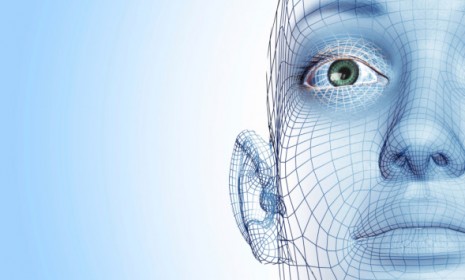The FBI's new facial recognition program: 'Big Brother' in action?
Fingerprints are so 20th century. Soon, the FBI will be able to use biometrics to spot bad guys in a crowd

A free daily email with the biggest news stories of the day – and the best features from TheWeek.com
You are now subscribed
Your newsletter sign-up was successful
The FBI is spending $1 billion to put together a facial recognition database that will let it spot suspects using footage from public security cameras. The new system would mark a giant leap forward for the bureau, which for decades has been using fingerprints and mug shots to ID suspects. How will it work, and should ordinary citizens be worried about privacy invasions? Here, a brief guide:
How would the system work?
The program, called Next Generation Identification, is basically a more comprehensive version of the FBI's fingerprinting database, which worked about the same way in 1999 as it did when the FBI began collecting prints, in 1924. To build the new database, police will start collecting more identifying information, from iris scans to DNA analysis to voice identification, so that in the future, federal agents will be able to use public cameras to pick out suspects and persons of interest from a crowd.
The Week
Escape your echo chamber. Get the facts behind the news, plus analysis from multiple perspectives.

Sign up for The Week's Free Newsletters
From our morning news briefing to a weekly Good News Newsletter, get the best of The Week delivered directly to your inbox.
From our morning news briefing to a weekly Good News Newsletter, get the best of The Week delivered directly to your inbox.
Can it really spot bad guys in a crowd?
Yes. In 2010, tests found that some computer algorithms were able to match a person on camera to the right mug shot on file 92 percent of the time. The system is also able to use profile shots to spot people even if they don't look straight into the camera.
When will it be ready to use?
There's already a pilot program underway in select areas, but the full rollout isn't expected until 2014. Right now, the system is only hooked up to law enforcement databases, so agents can only sift through the details of people with a criminal record. At some point, however, the database could be linked to other government photo databases, so that anyone with a driver's license or other government-issued ID could be caught in the web.
A free daily email with the biggest news stories of the day – and the best features from TheWeek.com
Are privacy activists angry?
Yes. We ought to be very wary of "Big Brother" rolling out a nationwide system to "spy on the entire population," says Sara Reardon at New Scientist. Even if the government doesn't abuse this power, "unauthorized users might be able to hack the system and gain access to sensitive data." It's easy to understand the "hysterics," says Rick Moran at The American Thinker. "You don't have to be a paranoid to ask legitimate questions about where all this is leading." Still, you have to admit that as long as there's oversight to make sure this facial recognition technology isn't abused, it could yield important benefits to us all.
Sources: American Thinker, CNET, Mashable, New Scientist
-
 Buddhist monks’ US walk for peace
Buddhist monks’ US walk for peaceUnder the Radar Crowds have turned out on the roads from California to Washington and ‘millions are finding hope in their journey’
-
 American universities are losing ground to their foreign counterparts
American universities are losing ground to their foreign counterpartsThe Explainer While Harvard is still near the top, other colleges have slipped
-
 How to navigate dating apps to find ‘the one’
How to navigate dating apps to find ‘the one’The Week Recommends Put an end to endless swiping and make real romantic connections